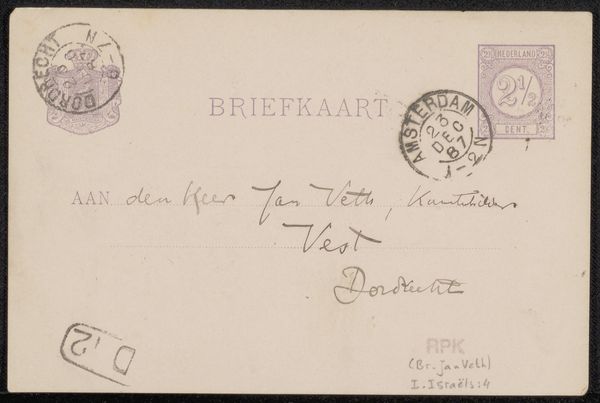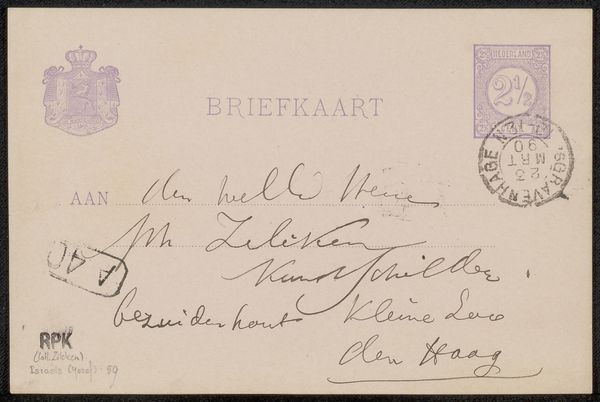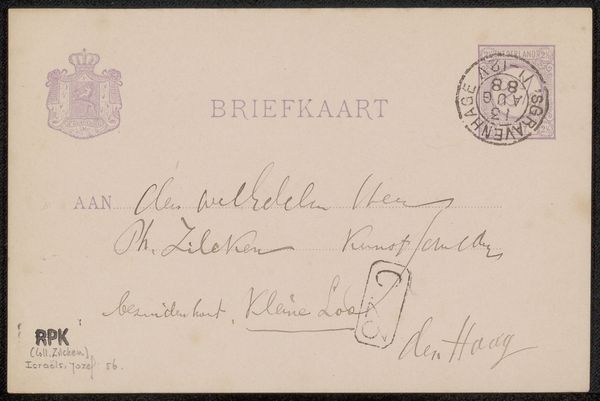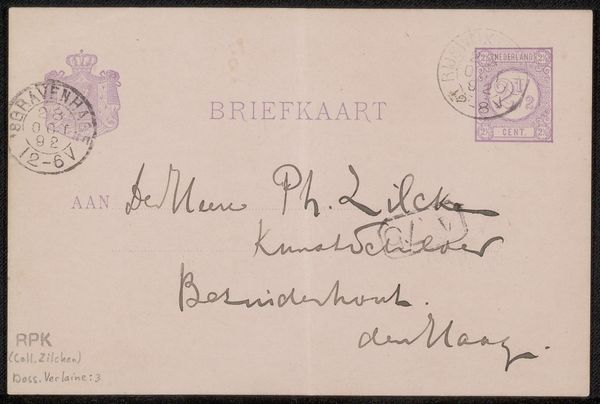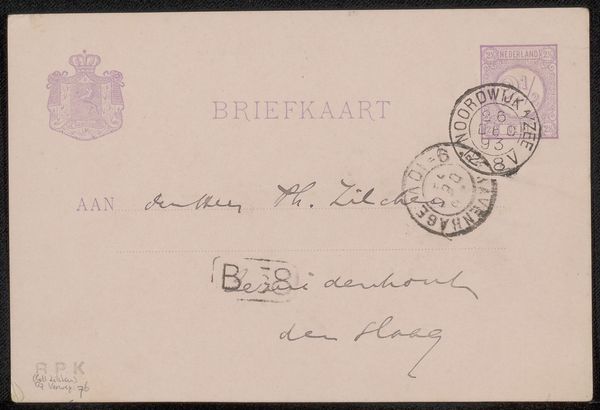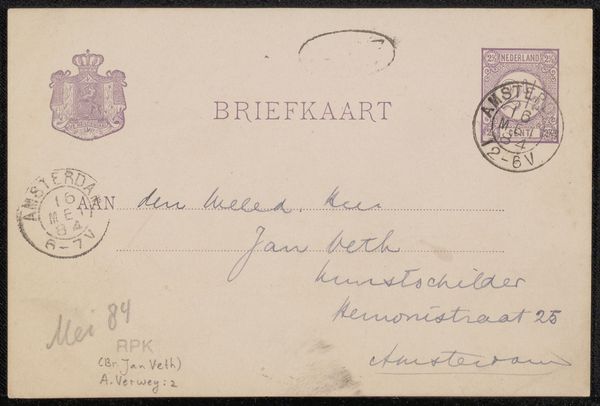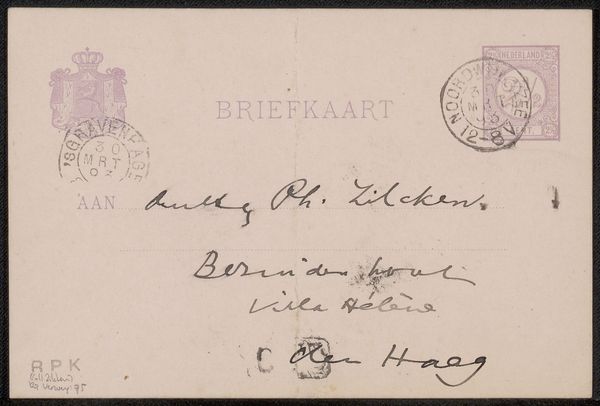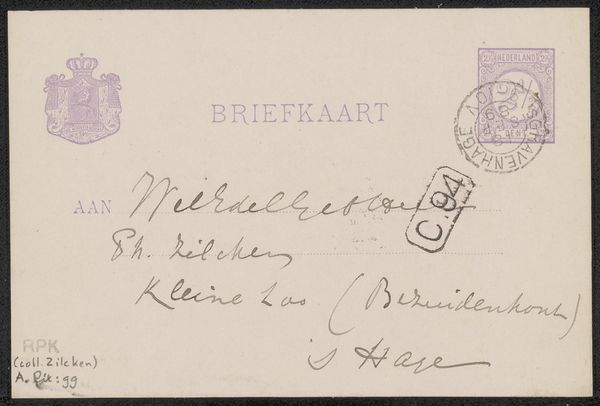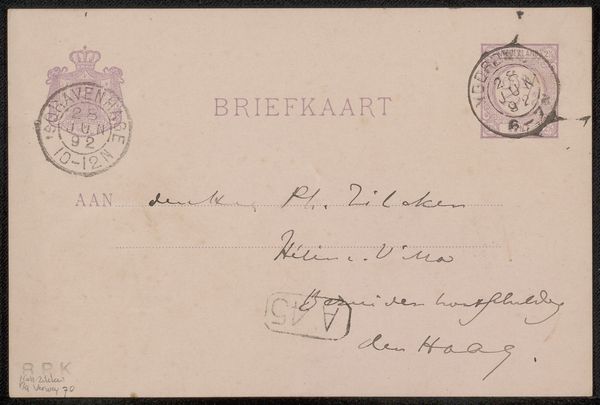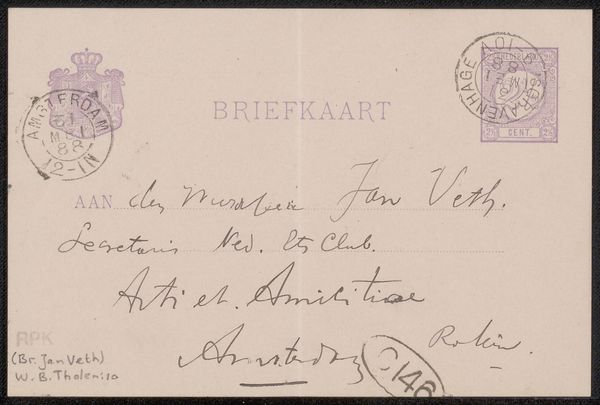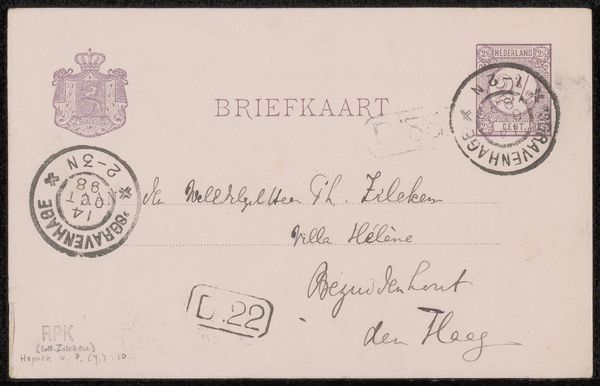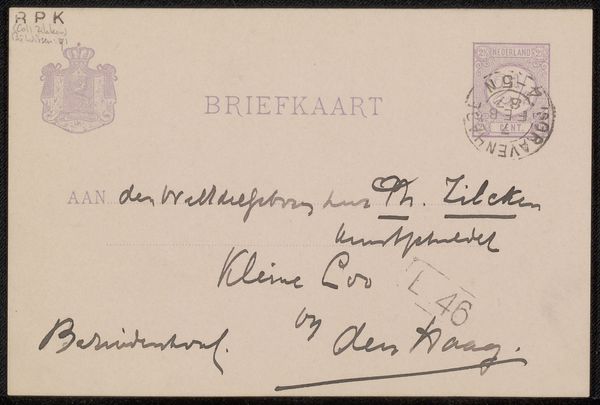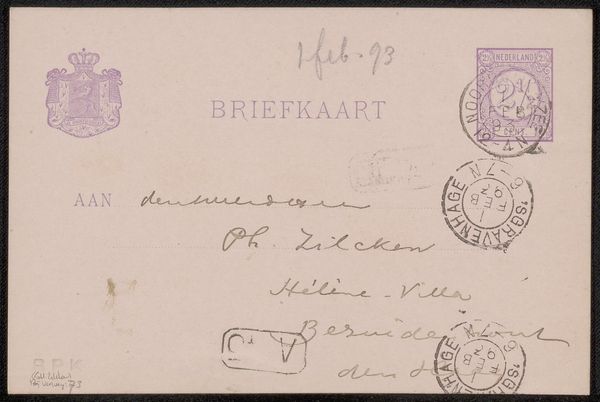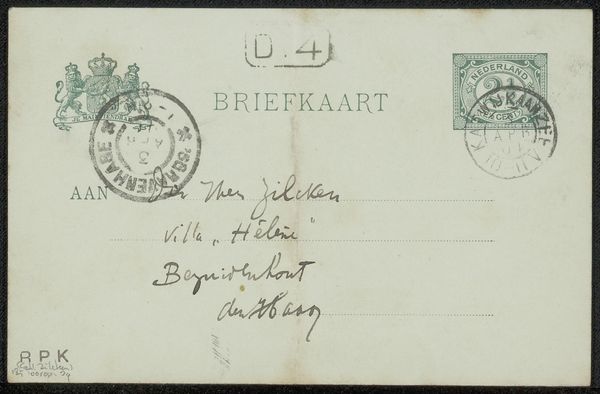
drawing, paper, ink, pen
#
drawing
#
pen sketch
#
hand drawn type
#
paper
#
personal sketchbook
#
ink
#
hand-drawn typeface
#
ink drawing experimentation
#
pen-ink sketch
#
pen work
#
sketchbook drawing
#
pen
#
storyboard and sketchbook work
#
sketchbook art
#
calligraphy
Copyright: Rijks Museum: Open Domain
Editor: This is "Briefkaart aan Philip Zilcken" by Willem Bastiaan Tholen, probably from the late 1880s. It’s an ink drawing on paper, basically a postcard. What strikes me is how ordinary it is—just someone's handwriting. How do you interpret such an everyday object as a work of art? Curator: Exactly! Its power resides in its ordinariness. The handwritten script elevates personal communication into art. Notice the postal stamp, the crown… These are not just administrative markings but symbols of nationhood, bureaucracy, communication itself. Editor: So you’re saying the visual language carries more weight than the literal message? Curator: Precisely. Consider the sender’s choice of script. Calligraphy isn't merely about conveying information; it’s about imbuing the message with a personal touch, an aesthetic quality that transcends the functional. It whispers of cultural memory, linking the sender to a tradition of refined communication. What does the very act of sending a handwritten card signify in our digital age? Editor: It becomes an act of resistance almost. A symbol of slowing down. It's almost like preserving a cultural relic. Curator: It’s a ghost of a shared humanity. Each stroke is an intimate imprint. Editor: I see now. It's like decoding symbols to uncover layers of history and meaning. Curator: Indeed. What we deem mundane often holds the richest tapestry of human experience. Thank you.
Comments
No comments
Be the first to comment and join the conversation on the ultimate creative platform.
